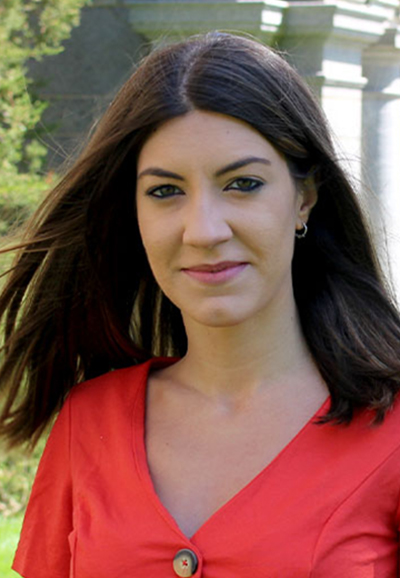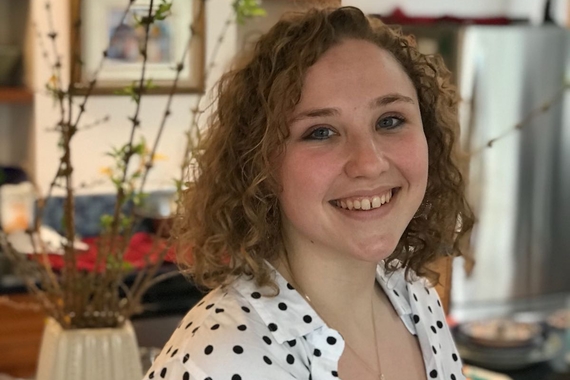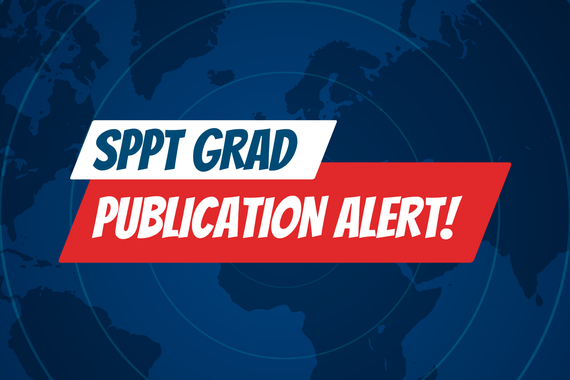Graduate Student Research Projects: Celia Bravo Díaz

Celia Bravo Díaz, MA, is a PhD candidate in the Hispanic and Lusophone Literatures, Cultures, & Linguistics Program in the Department of Spanish & Portuguese Studies. She holds a BA in Translation and Interpretation from the University of Grenada, Spain. She is a recipient of the College of Liberal Arts Doctoral Dissertation Fellowship for Spring 2021.
Her dissertation, The Acquisition of Stop Consonants by Chinese Learners of Spanish: A Longitudinal and Cross-sectional Study, is concerned with understanding how second language learners acquire new sound categories and the nature of their development in reference to linguistic, individual and social factors. Specifically, it examines the developmental patterns in the production and perception of Spanish stop consonants (/p, t, k, b, d, g/). The data for this project came from fieldwork she conducted in Spain between February and July 2019, and her participants are 82 Chinese learners of Spanish at six levels of proficiency, from absolute beginners to highly proficient speakers who have spent more than seven years studying in Spain.
As an undergraduate student on a study abroad program in China, Celia noticed that the challenges that she faced as a native Spanish speaker learning Chinese were different from her native English speaking counterparts and she became curious about Second Language Acquisition. While in China, she worked as a Spanish tutor and noticed that all of the Spanish textbooks were designed for native English speakers and not suitable for Chinese students. “I remember making lists of errors and aspects that were difficult for my students in order to create specific materials for them. I became very interested in finding out about the effect that the grammar and sound categories in Mandarin might be exerting on their acquisition of Spanish.”
When asked about the specific challenges Chinese speakers face while learning Spanish, she cites language differences at both the phonetic-phonological and morphosyntactic levels. “Voiced consonants /b,d/g/ pose a challenge for Chinese speakers learning Spanish, since they do not have a counterpart in Chinese. The grammatical expression of tense (present vs past vs future) and aspect (perfect vs imperfect) in Spanish is an area of difficulty, because Chinese does not have grammatical tenses, and aspect is not codified in the verb, but through a rich repertoire of independent aspectual particles.” Her work serves as a foundation to identify the aspects of grammar that are most difficult to acquire - influencing the order in which they are taught, and the strategies and attention used in the classroom.
Thankful that all of her data had been collected pre-pandemic, Celia will be using her fellowship to conclude statistical analysis and finish the results and discussion sections of her dissertation.


